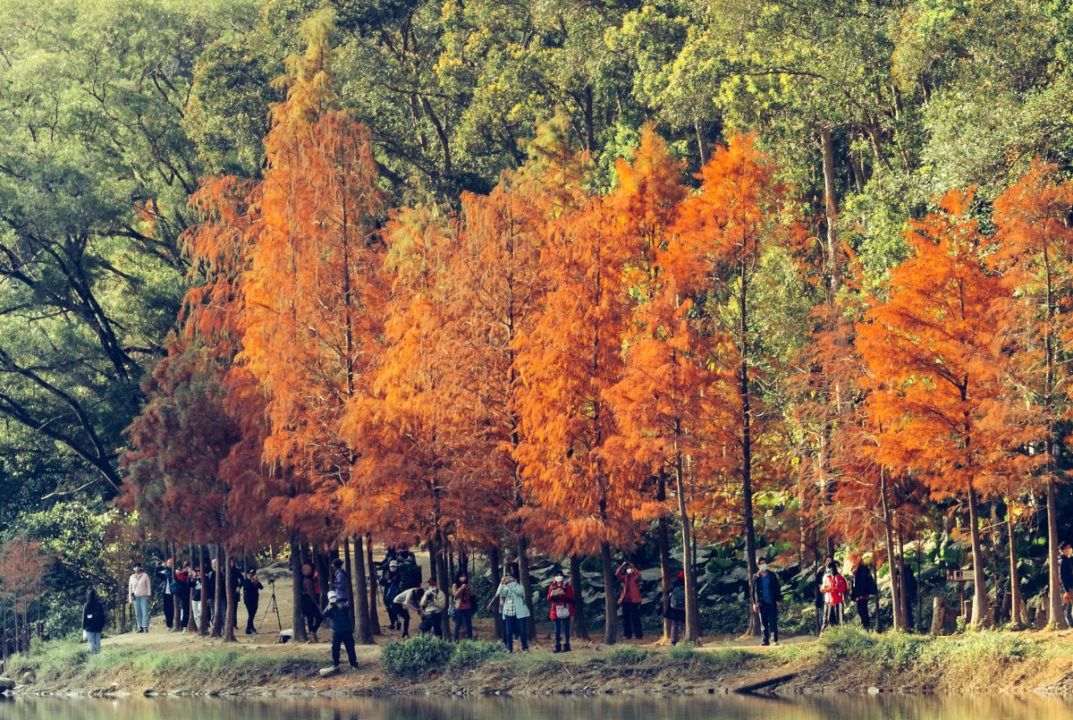Japan and South Korea may be the top destinations on a traveller’s list to view autumn leaves, but if you only have time for a day trip, there are quite a few places in the 852 where you can capture the season’s red-and-gold palette for your IG feed. The best time to see red leaves in Hong Kong is between November and January, when the territory’s sweet gum, bald cypress, sabino, and a variety of other trees change colour as the weather gets cold. So, put on your best woollies, pack a picnic basket, and head to our pick of the best spots in the SAR to enjoy fall foliage.
Tai Tong Sweet Gum Woods — Yuen Long
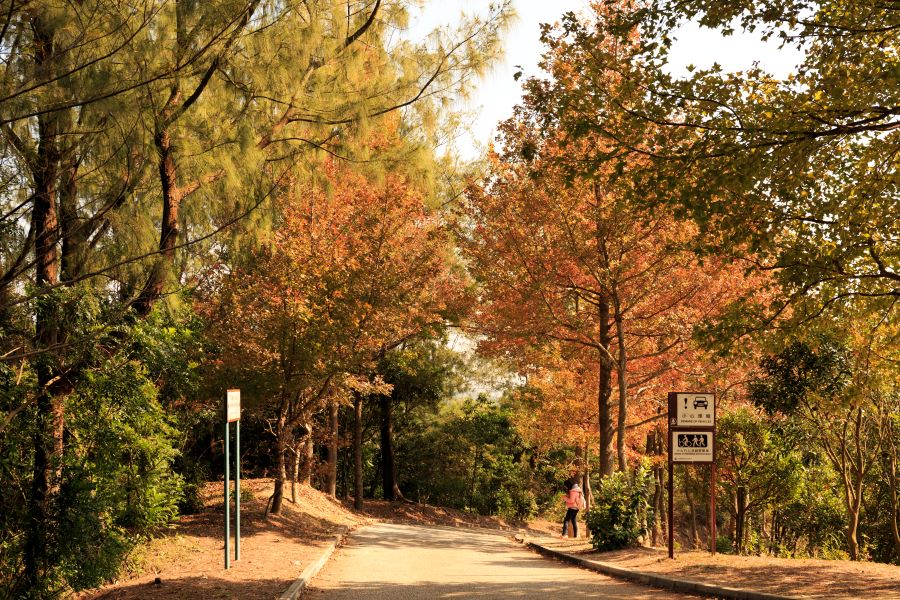
This is the No. 1 spot in Hong Kong to catch the changing colours of autumn, and is popular among photography enthusiasts because the contrast between the red leaves of the sweet gum trees and green foliage of the evergreen trees makes for striking images. Since it gets pretty crowded during December, which is usually peak red-leaf time, we suggest going at the beginning or end of the season.
How to get there: Take the West Rail Line to Long Ping Station, get out at Exit B2, then take the MTR Bus K66. Get off at the Tai Tong Shan Road stop, and the roughly 2.5km walk to the Sweet Gum Woods should take about 40 minutes from here.
Tai Tong Shan Road, Tai Tong, Yuen Long, Hong Kong
Tsing Yi Park — Tsing Yi
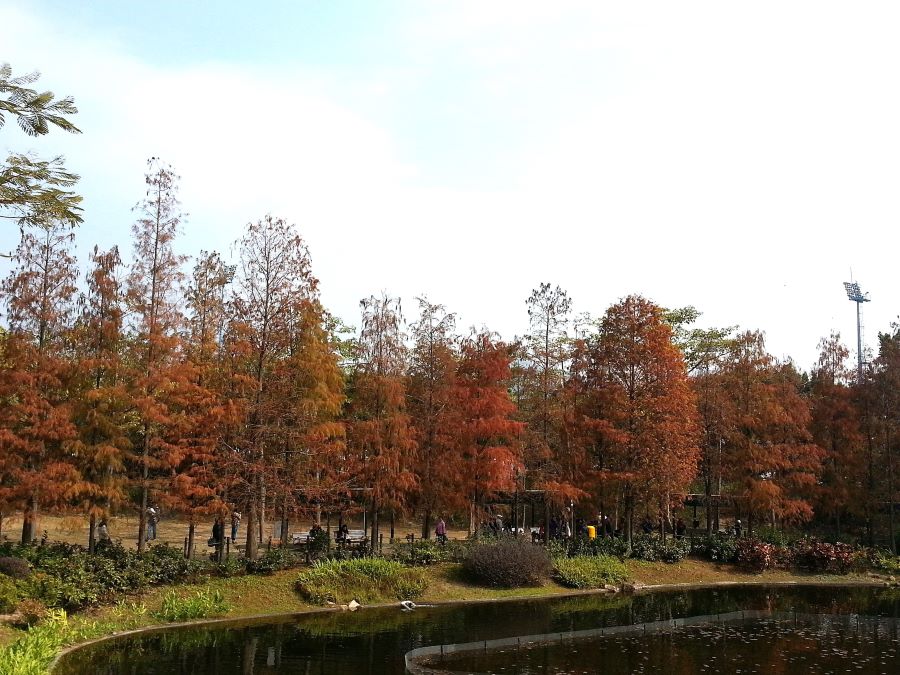
If you want an autumn-in-Europe sort of vibe, then make a trip to Tsing Yi Park, which has elements of Continental architecture in its pavilions, amphitheatre, and statues. But the standout feature is the lake with its sabino tree-lined shore, which will add a pop of colour to your fall photo portfolio.
How to get there: There are several buses and minibuses that take visitors directly to Tsing Yi Park or to stops in its vicinity. If you’re going there by MTR, take the Tung Chung line, alight at the Tsing Yi Station, and access the park via Maritime Square.
60 Tsing King Road, Tsing Yi, Hong Kong
Hong Kong Zoological And Botanical Gardens — Central
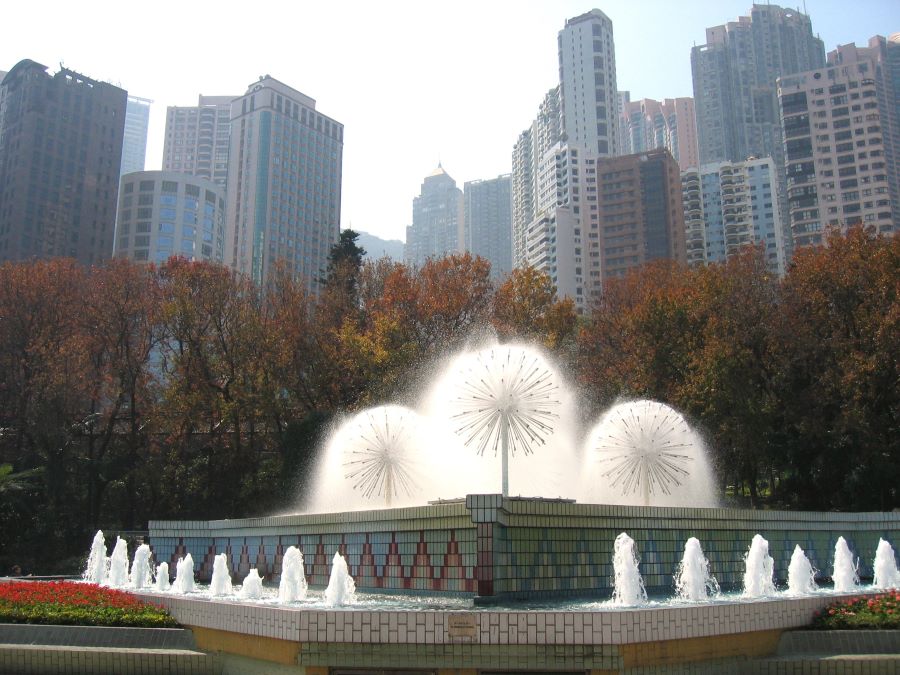
Don’t want to head out of town to get your fill of fall? You can find red leaves Island-side in the Hong Kong Zoological and Botanical Gardens, which are especially scenic during this season. When the leaves of the half-century-old trees on the Avenue of Sweet Gum fall on the path they flank, they create a bright red carpet of foliage that’s worth every camera click.
How to get there: Take the MTR to either the Central or Admiralty MTR station and catch a cab to the gardens. Alternatively, you can take any of these buses or minibuses to get there.
Albany Road, Central, Hong Kong
Chinese University Of Hong Kong — Sha Tin
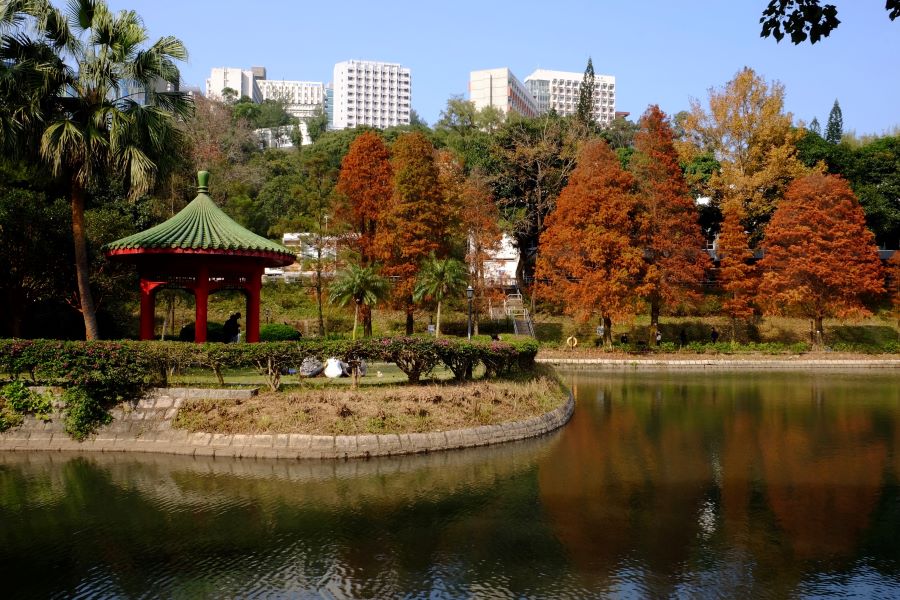
Planning a trip to the northeastern part of the New Territories? Then make a pit stop at the Chinese University of Hong Kong — specifically at Lake Ad Excellentiam. The lake is lined with sweet gum and sabino trees, and the contrast between the leaves — the sweet gum’s are star-shaped, the sabino’s more feathery — make for beautiful photographs.
How to get there: Get out of MTR University Station via Exit D and walk via the Philosophy Path to get to the lake.
Chung Chi College, The Chinese University of Hong Kong, Sha Tin, Hong Kong
Pineapple Dam Nature Trail — Tsuen Wan
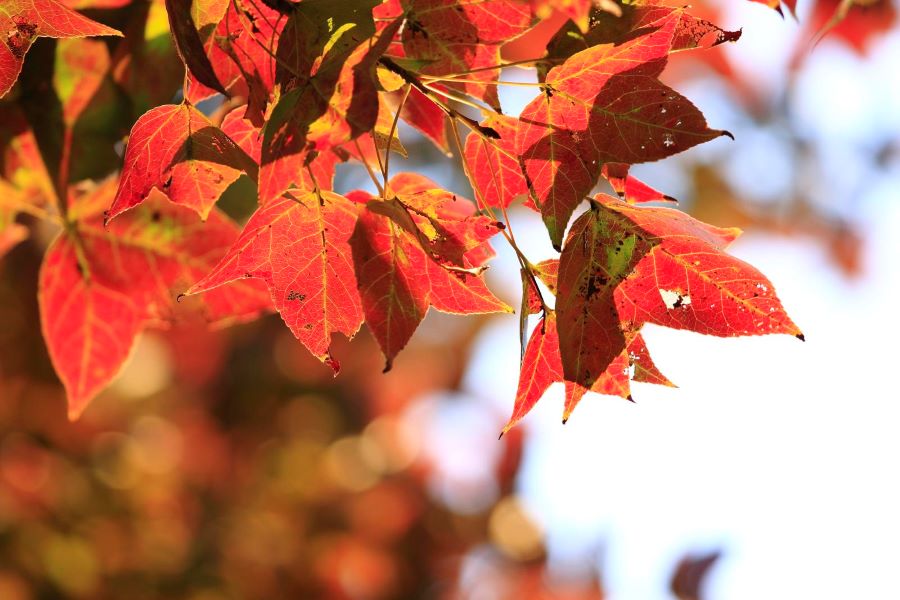
Visitors flock to Shing Mun Reservoir — which is where the Pineapple Dam Nature Trail takes you — for its stunning paperbark trees. But the one-kilometre-long nature trail, which runs along the shores of the reservoir, is particularly picturesque during the fall because the leaves of the trees turn a vibrant red.
How to get there: There are two ways to get to Shing Mun Reservoir. The first is taking the green minibus 82 from Shiu Wo Street from Tseun Wan, which will take you straight to the start of the Pineapple Nature Trail Dam. If you’re coming from the direction of Kwai Fong, take any bus going towards Lei Muk Shue Estate from the Kwai Fong MTR Station, and then walk towards the Shing Mun Reservoir.
Shing Mun Reservoir, Tsuen Wan, Hong Kong
Tai Po Kau — Tai Po
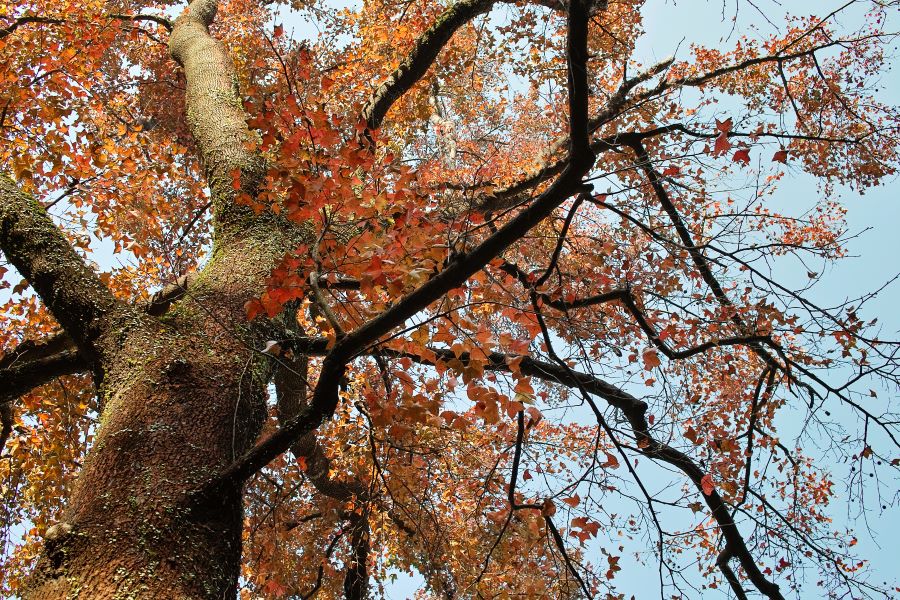
Originally called the Tai Po Kau Plantation, this 440-hectare nature reserve has a wide variety of flora. While the dominant tree is Chinese pine, there are sweet gum trees that typically change colour in autumn. The reserve is also home to wildlife such as birds, fish, frogs, and toads.
How to get there: The closest MTR station is the one at Tai Wo, which you can get to by taking the East Rail Line. Then head to the Tai Wo Bus Terminal and take bus 72 to Chung Tsai Yuen, which is a short walk from the reserve. Otherwise, the closest bus stops are the ones for 72, 72A, 73A, 74A and minibus 28K.
Tai Po Kau Nature Reserve, Tai Po, Hong Kong
Kau Tam Tso — Sheun Wan Tai Po
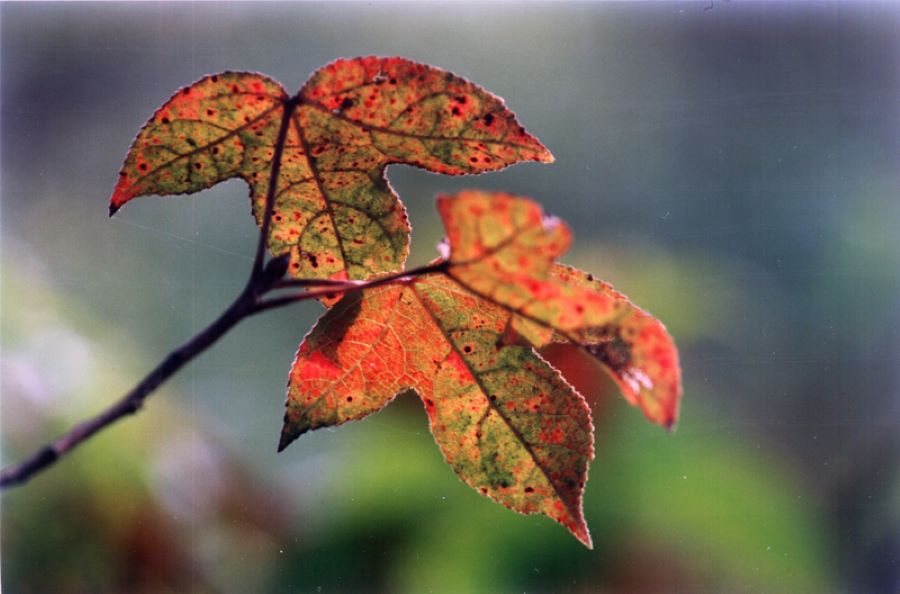
Hikers on their way to Tiu Tang Lung during red-leaf season should stop at the old Hakka village of Kau Tam Tso. Here, you’ll get pictures of sweet gum trees at their glorious fall best away from the crowds of other popular autumn-tree spots in the city.
How to get there: You’ll need to get to Tiu Tang Lung first by getting to the Tai Po Market station via the East Rail Line. Get out at Exit B, then head to the Tai Po Market Station Public Minibus Terminus and catch the green minibus 20R or bus 275R to Wu Kau Tang.
Kau Tam Tso, Shuen Wan Tai Po, Hong Kong
Lau Shui Heung Reservoir — Pat Sin Leng
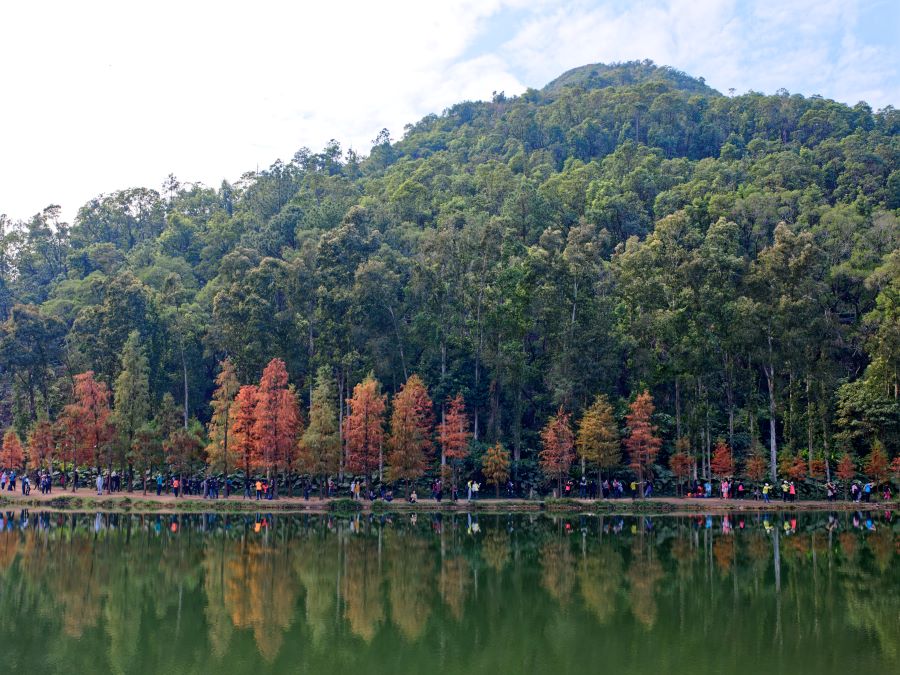
This is a great alternative to Tai Tong as it’s less crowded and can be combined with a relatively easy hike to Hau Tok Reservoir. The water in the reservoir is quite calm, which means you can get stunning images of the cypress trees along the shore reflected on the mirror-like surface of the water.
How to get there: Head to the Fanling MTR and head towards the exit for the Fanling Station PLB Terminus. Ride the green minibus number 52B to the junction of Hok Tau Road and Lau Shui Heung Road, and follow the signs towards the Lau Shui Heung Reservoir.
Pat Sin Leng Country Park, Pat Sin Leng, Hong Kong
Kowloon Walled City Park — Kowloon City
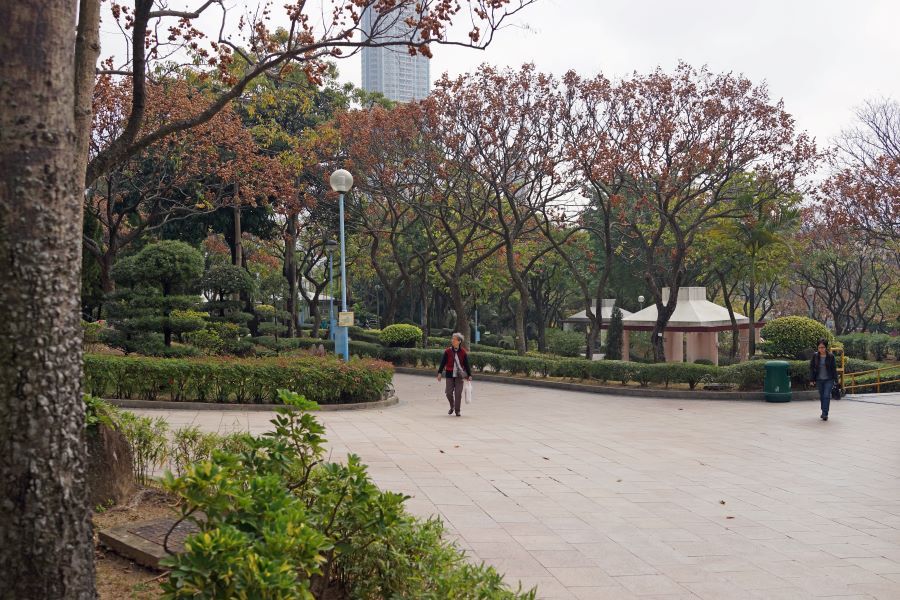
This park has a storied past as it is built on the site of the infamous Kowloon Walled City. It is now one of many green spaces in the city just north of Boundary Street, complete with walking and bike paths, a pavilion, as well as artifacts and plaques dedicated to the site’s historical significance. There is also a Red Leaf Path where you can experience the changing colours of the season, courtesy its queen crepe myrtle, mountain tallow, and copper leaf trees.
How to get there: Take the Tuen Ma Line and alight at the Sung Wong Tai MTR station and head towards Exit B3. From there, you can walk to the park or take a cab. Otherwise, there are several buses and green minibuses that stop around the park.
Kowloon City, Hong Kong
Hong Kong Wetland Park — Tin Shui Wai
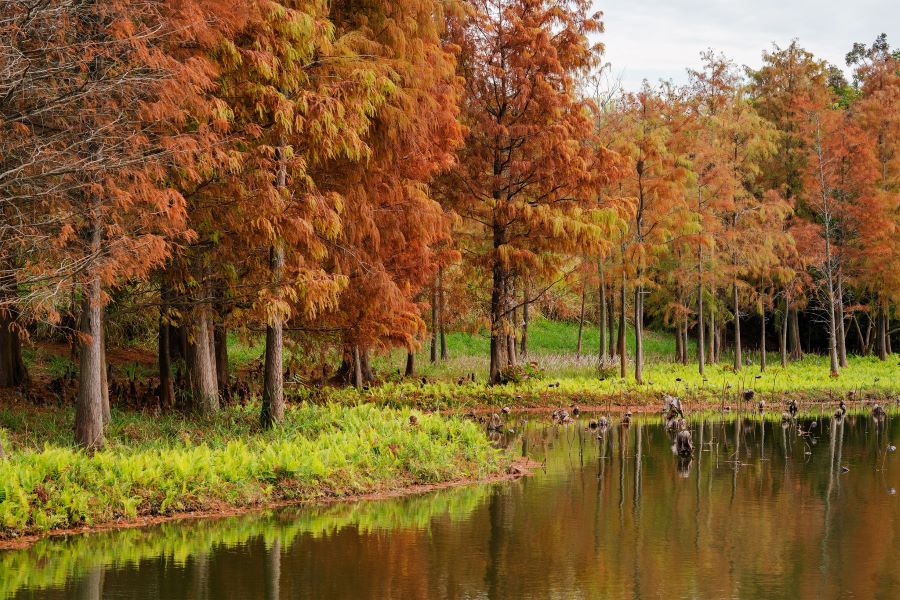
The main attractions of this park are the wetland habitats specially designed for waterbirds. And while the Wetland Park does have sweet gum trees, the bald cypress trees along Succession Walk are what make it worth visiting during red-leaf season as they lend the surroundings a distinctly melancholic beauty.
How to get there: If you want to use the MTR, you’ll need to get to the Tin Shui Wai Station on the Tuen Ma Line, and then take Light Rail Train 705 to Wetland Park Station. Alternatively, there is a vast network of buses and minibuses that you can take.
Wetland Park Road, Tin Shui Wai, Hong Kong
Jordan Valley Park — Kwun Tong
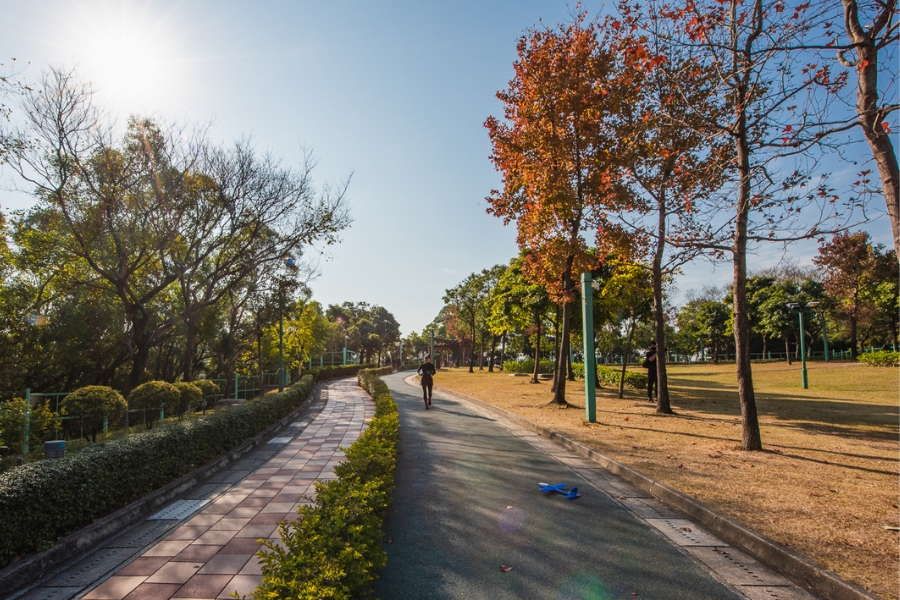
This sprawling park that is built on the site of a former landfill is best known for its wide open spaces where visitors pitch tents and take time out to explore the botanical gardens, get a spot of exercise on the jogging track, or indulge their need for speed on the model car racing circuits. But the area has about 50 sweet gum trees that turn crimson in winter.
How to get there: The closest MTR station is Choi Hung, which you can leave via Exit B and take a taxi to the park. There are three buses you can take to get there — the 27 or the 29M from Choi Hung, or the 23 from Kwun Tong.
71 New Clear Water Bay Road, Kwun Tong, Kowloon
North District Park — Sheung Shui
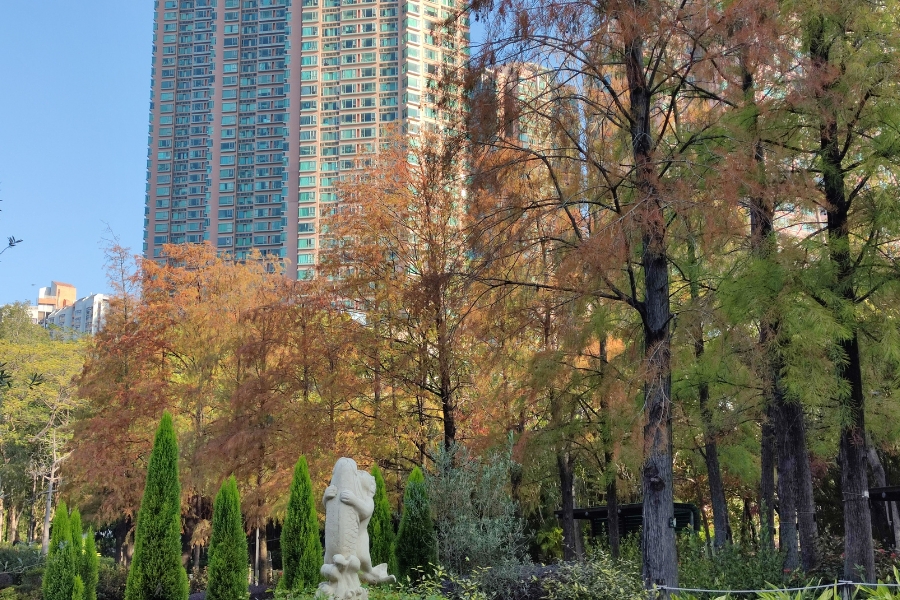
The design of this picturesque park located between Fanling and Sheung Shui is inspired by the Yangzhou style and has strikingly unique pavilions. And at the heart of this green space are 16 bald cypress trees along the banks of an ornamental lake, which change colours in the autumn and stand out from the surrounding evergreen trees.
How to get there: There are several buses and two minibuses from Hong Kong Island, Kowloon, the New Territories and even the Hong Kong International Airport that will take you to this park.
Jockey Club Road, Sheung Shui
Kent Road Garden — Kowloon Tong
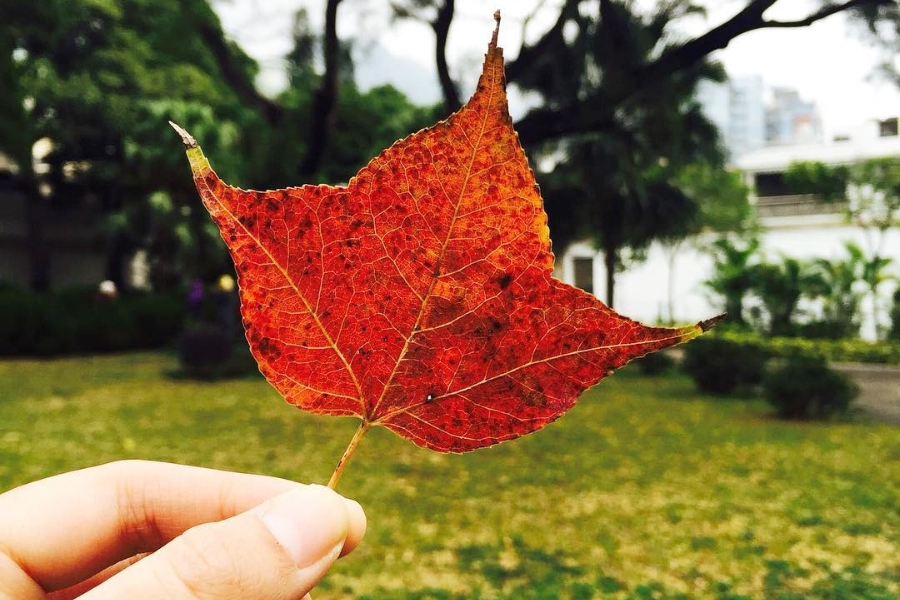
This “secret garden of Kowloon Tong” is tucked away in among a cluster of buildings. It is a great place to take in red leaves away from the bustle of the city from the comfort of a pavilion or the wooden chairs on the premises.
How to get there: Take the East Rail Line to Kowloon Tong MTR Station. You can access the station from Exit G2, and the park is a five-minute walk from here.
Kent Road Garden, Kowloon Tong
If you want to keep track of the progression of the season’s fall foliage, visit the red leaves index on the Leisure and Cultural Services Department’s Flower Appreciation website
Header image credits: Ivan Lau via Flickr


